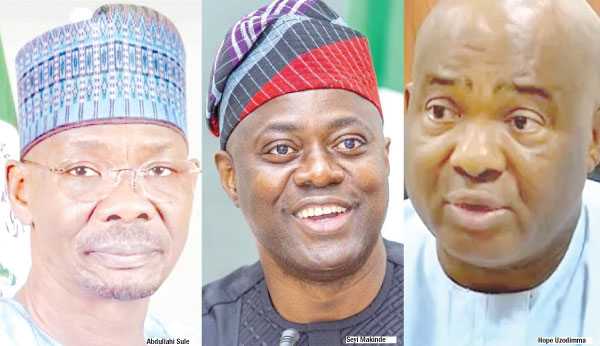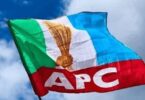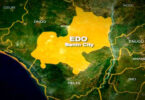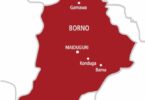As the present bad time takes its toll on the populace, governors are increasingly coming under strident criticisms from some senior citizens and groups who accused them of failing to provide social amenities. In this report, KUNLE ODEREMI writes on the development vis-à-vis the prevailing socio-economic realities across the country.
IN about 35 days from now, Nigeria will mark 63 years as an independent country. It was on October 1, 1960 that Nigeria was removed from the shackles of British colonialism. Part of the beauty and ecstasy of the freedom the people enjoyed then was the high quality of leadership that took over from the colonial masters. The regions were the fulcrum of economic growth and development. But the joy was cut short by the military intervention into the political space. It had hinged its intervention on accusing the civilian governors of gross abuse of office.
With the arbitrary carving out of states from the four regions, the military multiplied the layers of administrative structures. It heralded a regime of military governors and administrators at the state level, with multiplicity of ministries having civilians as commissioners. The scorecard of that seeming diarchy largely left much to be desired. The semblance of a rekindled hope was witnessed between 1979 and 1983 in the second republic, as some governors shone brightly in terms of good governance.
In 25 years of unbroken civil rule since May 1999, many governors have served at the state level. Apart from campaigning based on the manifestoes of their political parties, they also make individual promises that perhaps facilitated their getting the mandate of the electorate. In fact, if the contents of the major political parties that have had the privilege of holding sway at most of the 36 states in the country were anything to go by, many observers think that the bar of governance would have heightened beyond its current level.
While Nigerians have continuously bashed top public functionaries like president, members of the National Assembly and ministers over alleged malfeasances, a lot of former governors have also had a raw deal in the hands of the led over issues bordering on impropriety and other uncomplimentary conduct. Many of the cases that are either pending or disposed of by the anti-graft agencies involve former governors.
The administration of President Bola Tinubu is already receiving sizzling verbal assault due to the fallouts arising from certain policies and programmes that are afflicting untold hardship on the citizens. But, governors have also become whipping boys over the current hardship faced by Nigerians. This is evident as the low, high and mighty in the society have launched a barrage of verbal vitriol on the state chief executives. Former President Olusegun Obasanjo has consistently passed a vote of no confidence on the governors. He is averse to what he perceives as their wasteful spending, unviable ventures, profligacy and unwarranted payment of pension to former governors.
Another eminent citizens that has spoken on the role of governors in nation-building is the Emir Of Kano, Emir Muhammad Sanusi II, who is 2015, asserted that development is now driven by cities and not by the federation. At the commissioning of an integrated Feed Mill and Poultry valued at N150 million in Kaduna, Sanusi said governors need to encourage private investment in their states as they are far more important wheel of development than the Federal Government. “The governors are far more important in the wheel of development in Nigeria than the Federal Government. The only way to bring development to the grassroots is for every governor to go out internationally and locally, encourage private investment and create jobs in the state,” Sanusi said.
Following the recent judgement by the Supreme Court granting financial autonomy to local governments in the country, President Bola Tinubu used the opportunity to further tickle governors on their statutory functions. He advised them to zero in on the needs of local communities by ensuring accountability and efficiency in the administration of local government councils. He told a visiting leadership of the Arewa Consultative Forum (ACF) at the Presidential Villa, Abuja: “We are running a constitutional democracy. I will appeal to you to summon the governors. I am doing my very best to enhance the revenue base of the country. They must equally be sympathetic, and they must urgently consider the needs of the local people. People reside in the local communities; that is where they work, farm and live. If the local governments are not effective in delivering services; as leaders, we must not hang on to the numbers. We have 774 local government areas, but are they truly effective? Do they solve problems for Nigerians? Do they coordinate development programming with the state and federal governments? Who is being held accountable for the performance of the 774 local governments? Maybe we should look at recalibrating. What was good four years ago may not be good today. When we want the votes, we go to the locals; when we get the votes, we move to and focus on Abuja.”
What must the states do?
Each of the states boasts boundless economic potentialities and opportunities. Arable land, mineral deposits, water culture, tourism are a few of the sectors that could be harnessed to shore up their revenue base. Experts suggest that each state can key into areas where it has a comparative advantage in whether agriculture, tourism or technology. Others canvassed that they facilitate partnerships with the private sectors to attract investments and stimulate economic growth, create job opportunities for residents; invest more in infrastructure and technology, especially in the digital age, as well rural development and integration to reduce urban migration from the hinterland. There is also a suggestion that they encourage rural agro-allied industrialisation to add value to agricultural products, create employment, and boost the overall economy.
At the macro-economic level, governors should step up measures aimed at blocking revenue leakages by adopting sophisticated wares to track public funds and ensure efficiency and accountability. In other words, they should uphold the ethos of good governance practices and transparency in order to engender public confidence and support. These measures would reduce the dependence of states on the Federation Account to survive and meet their responsibility to the citizens.
But more importantly, governors need to deemphasize power politics which often creates schism between them and other critical stakeholders in the polity. Succession battle in Government House usually takes the front burner at the approach of general election. There is love lost between them and members of the National Assembly, while state Houses of the Assembly are at their call and beckon.
The funding mantra
With the huge fund accruing from the removal of subsidy from petrol, the federal authorities have consistently declared that states now have financial muscle to impact on the lives of the people. There has been bailouts and other forms of palliatives going to the states to cushion the effect of the harsh economic situation. In spite of all this, the Minister for Niger Delta Development, Abubakar Momoh, is among the personalities that say some governors have fell short of public expectations in terms of performance. He spoke against the backdrop of the recent youth protest against hardship in the country. Featuring on a live television programme, Momoh said: “I listened to those, particularly the youths, who have been saying that this (federal) government is not doing enough (to end bad governance) and want things to be done differently.
“But let me make it clear. I think in Nigeria today, with the withdrawal of (petrol) subsidy, people should know that, of course, money is being made available to different tiers of government, both the state and local governments. And such monies are expected to translate to good governance.”
The Governors’ Forum
Apparently, the Nigeria Governors Forum (NGF) has always taken some initiatives to put its members in better stead for the arduous task of serving as the catalyst and fulcrum for economic growth and prosperity. One of such initiatives is organising induction programme for new and returning governors to be able to efficiently dissect national issues and interests. The forum said the initiative is aimed at supporting incoming governors to develop key governance and management skills that will enable them transit from campaigning to managing the processes of governance. At one of the sessions, Bishop of Sokoto Diocese, Father Mathew Hassan Kukah had advised the governors to form their team with the best hands available and not necessarily with people of the same faith or tribe. “Nation building is a project and it is not only for politicians; learn to bring in outsiders, non politicians, learn to embrace your opponents. In managing diversity, leaders must point the way; if you want only Muslims, men, women, Christians, or other figments of your prejudices, you will fail because Joseph’s coat was beautiful because it was coat of many colors,” he stated.
Another speaker, Dr Mairo Mandara, who is a Senior Fellow, spoke for the Children Investments Fund Foundation UK, urged the governors to work towards reducing children from acute malnutrition and many other preventable diseases. She said they could do this by being part of the effort at ensuring treatment and prevention.
Collaboration
A sort of collaboration has been evident for long along geopolitical lines. The governors interface at the regional or zonal levels through platforms designed for them to exchange ideas, compare notes and work our areas of possible collaboration. For instance, there is the South-West Governors Forum, which is aimed at boosting regional economic integration, food production and security of lives and property. Part of its resolution at recent meeting hosted in Lagos by the state governor Babajide Sanwo-Olu, the chairman of the forum, was on the need to expand food production and agricultural development. It directed their respective states’ commissioners for agriculture to immediately come together and develop a comprehensive agricultural template that would leverage on each state’s comparative advantage. According to Sanwo-Olu, the forum also agreed to strengthen the DAWN Commission on operational efficiency and charged the commission to focus on economic integration, cooperation and investment promotion of South-West states, so each state was mandated to appoint a state focal person.
There is the North Central Governors Forum, which said there was no better time for the region to assert relevance in the political and economic affairs of this country than now. The governors said the zone could no longer be left behind, but must grow its economy to compete favourably with other parts of the country. The chairman of the Board of Trustees (BoT) is a former minister, Major General Jeremiah T. Useni (retd). “I think, we should do it together because the governors of today are sharing the same views with you. We believe in Nigeria, but we also want to grow the economy of North-Central. We want to make the North-Central relevant. We have the tools, we have the people, and we have Secretary to the Government of the Federation (SGF) now,” the governor of Nasarawa State, Abdullahi Sule said.
Rising from their meeting last week, governors elected on the platform of the Peoples Democratic Party (PDP) accused the federal authorizes of leading a subtle camping of blackmail against governors generally. They scored the federal government poor in delivering the gains of democracy to the people. With governors now the whipping boys, observers question whether it is a case of blame shifting from the national to subnationals or the fact that the governors are simply not doing enough.
READ ALSO: ‘Victim not our student,’ OAU disowns viral news of rape, robbery incident







